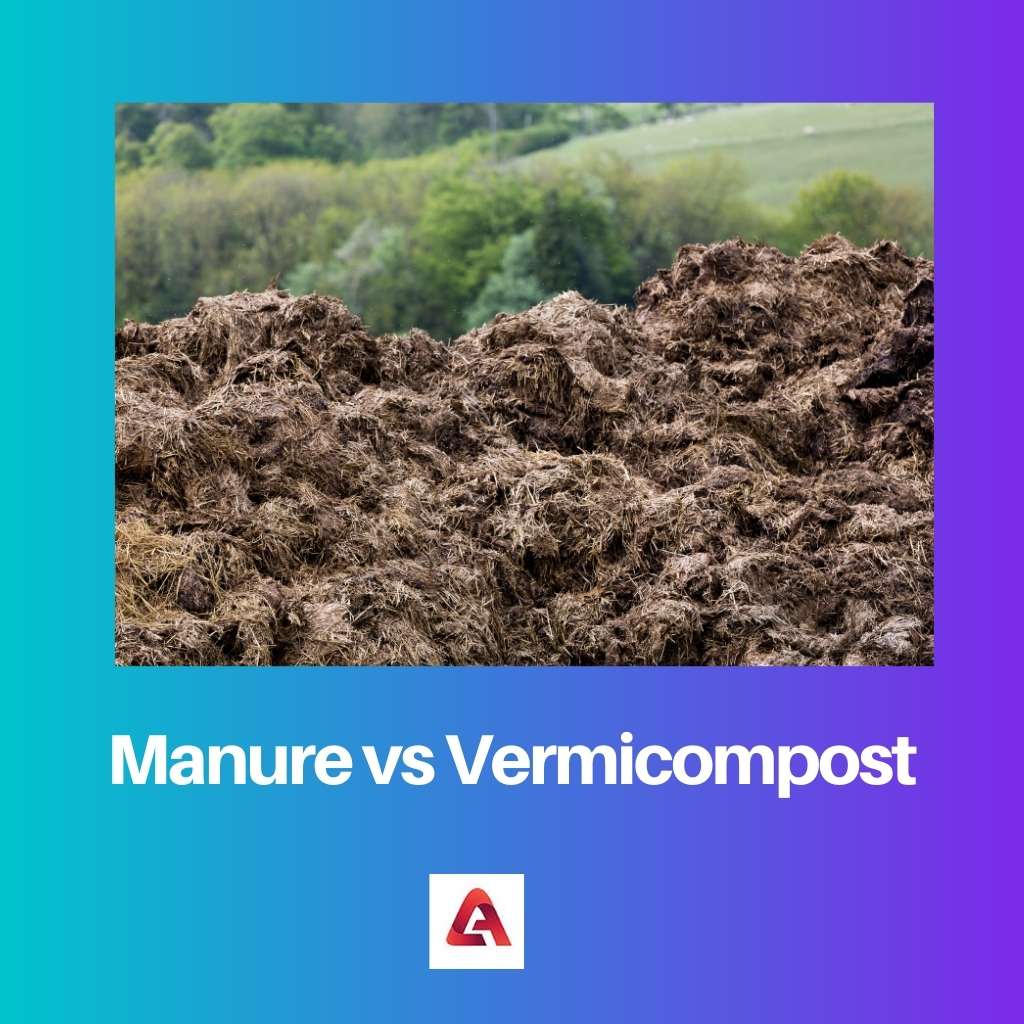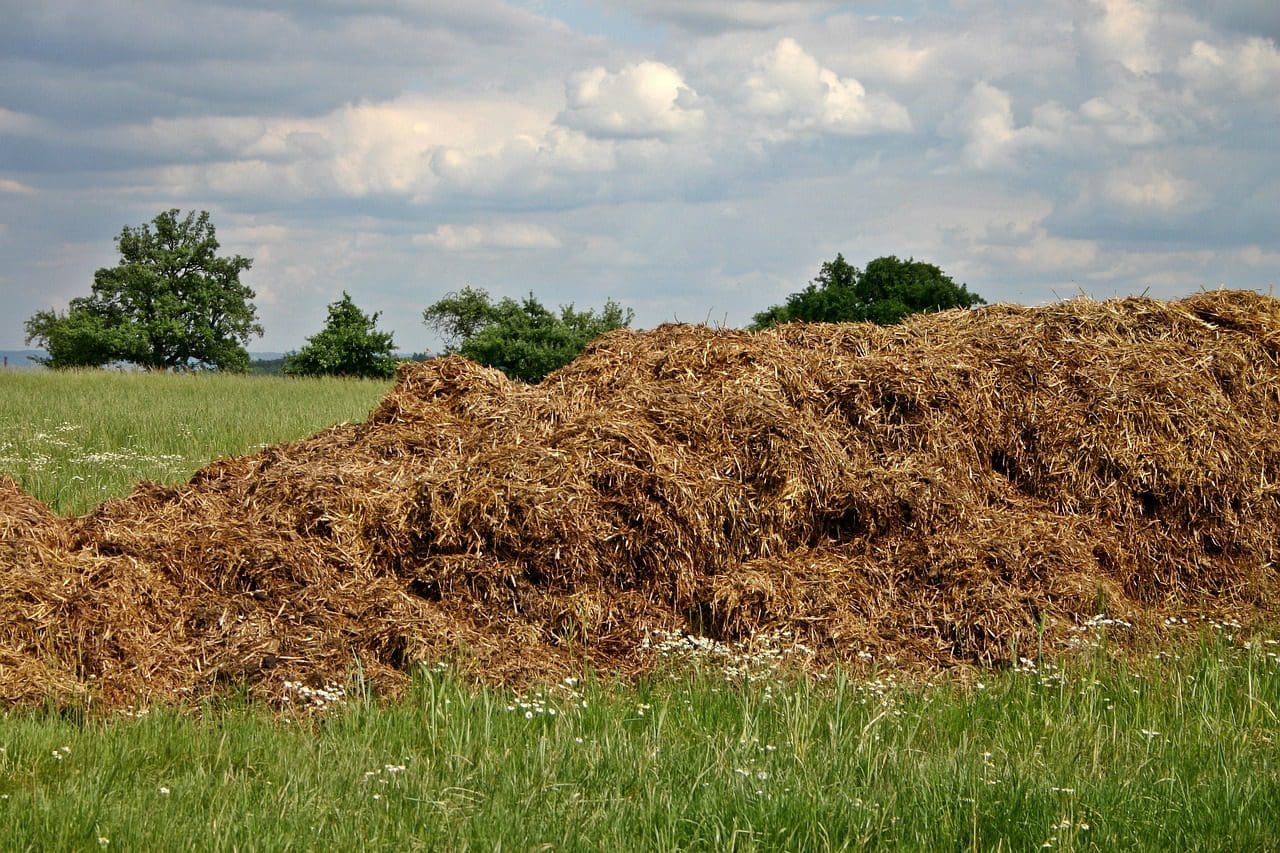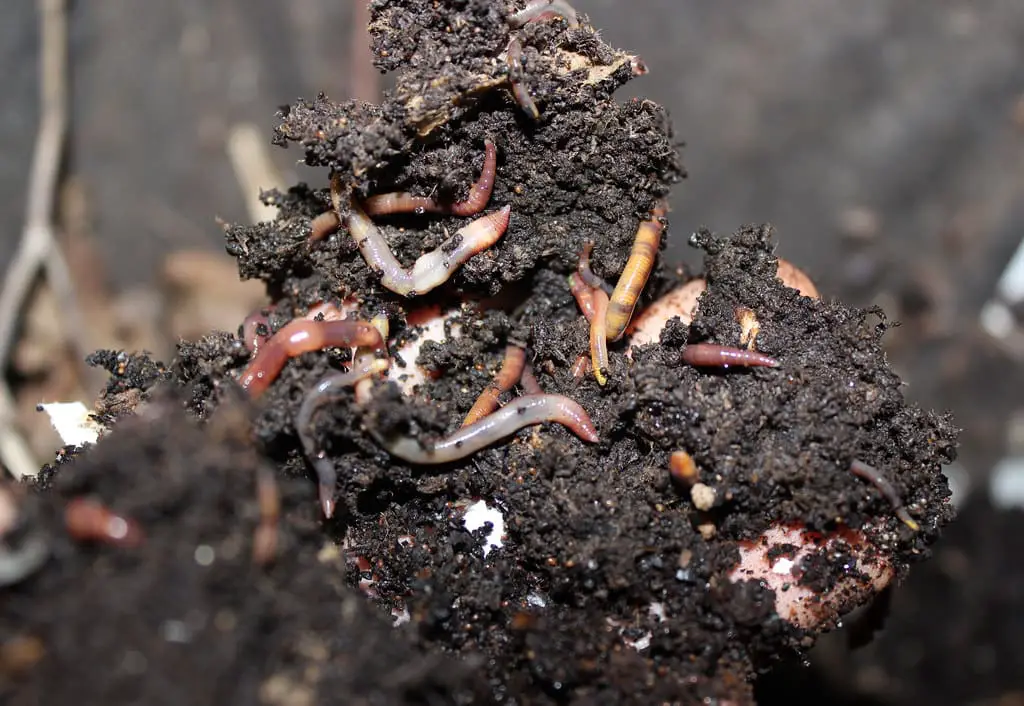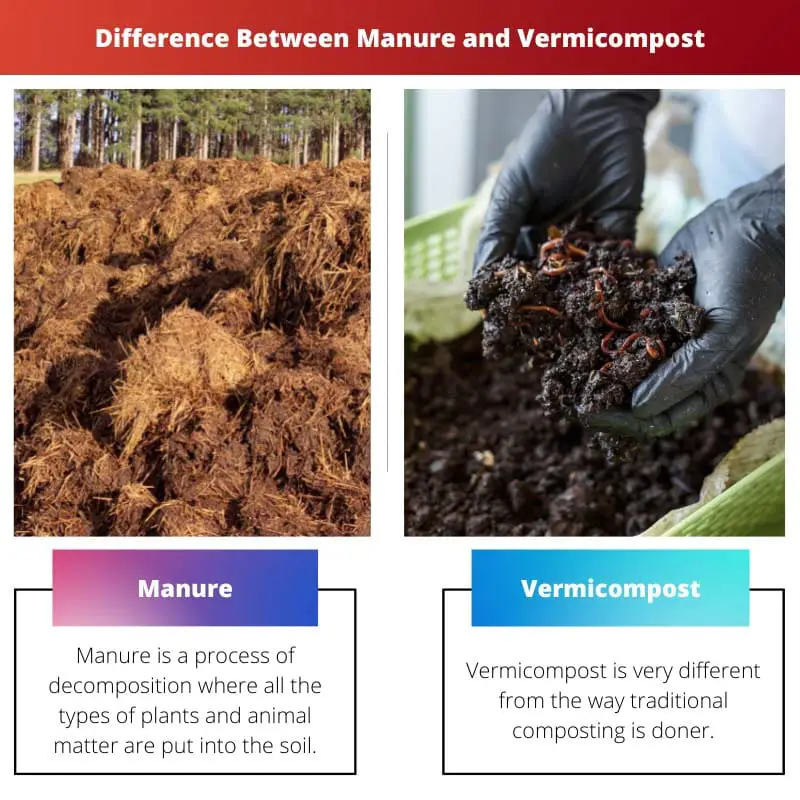Fertilizer is something that is used with the soil so that it can provide nutrients to plants. Fertilizers have two types, both natural as well as industrially, they can be produced.
Fertilizers are used basically in agricultural practices. Three nutrients are very important that should be there in fertilizer, i.e. Potassium, Nitrogen and Phosphorus.
In the 19th century, fertilizers were produced and developed synthetically. After that, it helped in transforming the global food systems.
Manure and Vermicompost are the two types of Fertilizers.
Key Takeaways
- Manure is an organic fertilizer made from animal waste, while earthworms’ decomposition of organic matter produces vermicompost.
- Vermicompost has a higher nutrient content and better soil conditioning properties than manure, making it a more effective fertilizer.
- Manure can contain pathogens and weed seeds, whereas vermicompost is free from these contaminants due to the worm digestion process.
Manure vs Vermicompost
Manure is the organic matter gotten from animal waste, which is decomposed and mixed with other organic material to improve soil fertility. Vermicompost is a type of manure produced through a process called vermicomposting. It involves the use of earthworms to break down organic material.

Manure is a process of decomposition where all the types of plants and animal matter are put into the soil, including animal faeces and compost, so that it can increase the production of the soil.
Manure is considered a natural fertilizer. It is very cheap.
Even excreta of human beings can also be used in manure. The manure of livestock is considered rich in potassium, nitrogen and phosphorus.
For a longer period, manure is considered a safe option. Because it creates less pollution.
Vermicompost is very different from the way traditional composting is doner. Because in this decomposition process, organic wastes are used.
Various types of organisms are used to make the compost out of vermicast, bedding materials and food waste. The rearing of worms is called Vermiculture.
Nutrient content in the vermicompost is very rich and excellent. It is also water-soluble. It acts as a soil conditioner and is used in various fields like organic farming, gardening and sustainability.
Other than the agricultural processes, it can also be used for sewage treatment.
Comparison Table
| Parameters of Comparison | Manure | Vermicompost |
|---|---|---|
| Microbes | Aerobic Bacteria, Protozoa, Algae, Fungi, Virus etc. | Mesophilic bacteria |
| Space | More space | Less space |
| Time | Takes more time in composting. | Takes less time in composting. |
| Organic Remains | Decomposition by Microorganisms. | Decomposition by Worms. |
| Uses | As a natural fertilizer. | Farming, sewage treatment, landscaping, compost tea, selling etc. |
| Labour | More labourer and maintenance. | Less labour and maintenance. |
What is Manure?
Manure was used from the ancient period. There is a mention of using manure in the Byzantine period.
Pig dung, human excreta, donkey and pigeon excreta were used as fertilizers. But they were not so successful. Manure is considered very good if used for a longer time.
Because it provides fertility to the soil, considered as a very rich and excellent source of macronutrients. It also helps in the leaching process.
When manure is used, soil erosion reduces automatically because it increases the physical properties of the soil. Manure also helps in the water holding capacity.
The transportation of Manure is very easy. However, it requires more space and time.
Manure also requires more labour and maintenance.
There are different categories in which Manure is classified according to soil management. First is animal manure which consists of both slurries as well as farmyard manure (FYM).
It is used as bedding for animals. Every animal manure has different properties. They are used for different purposes as well.
The second type is composting, where all the organic matter is decomposed into the soil. The third is Green manure that is grown for increasing fertility.
Such as leguminous plants that helps to fix the nitrogen.

What is Vermicompost?
Vermicompost was considered a better option than normal composting. Because in these, organic wastes can be treated faster.
The level of salinity in vermicomposting is also very lower when compared with manure. For the process of decomposition mostly, species of Earthworm is used.
Scientists recommend that red wigglers are best for vermicompost as they have a good appetite and they breed very quickly.
Many types of worms are used for vermicomposting. However, all are not considered good.
Some of the worms that are suited for the purpose are European nightcrawlers, Blueworms, red wiggler, African Nightcrawlers etc.
These species can be found extensively in North America and Europe. These worms are very adaptive.
Worms are also available online so that they can be purchased and used as bait.
Vermicompost has many uses like in farming, sewage treatment, landscaping, compost tea, selling etc. It is practised on a large scale in the countries like India, Canada, Italy, Japan, the Philippines, the United States, Malaysia etc.
Windrow and Raised-bed or flow-through systems are two techniques of vermicomposting.

Main Differences Between Manure and Vermicompost
- Microbes used in Manure are Aerobic Bacteria, Protozoa, Algae, Fungi, Virus etc. Microbes used in Vermicompost is Mesophilic bacteria.
- Manure requires more space than Vermicompost.
- Vermicompost is a faster process than manure or normal composting.
- Decomposition of Manure takes place by Microorganisms. Decomposition of Vermicompost takes place by worms.
- Manure is used as a natural fertilizer. Vermicompost has many purposes like farming, sewage treatment, landscaping, compost tea, selling etc.
- Manure requires more maintenance and labour than Vermicompost.



